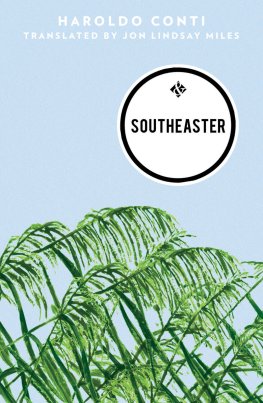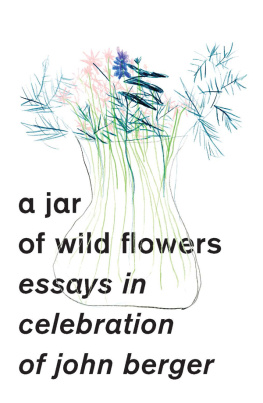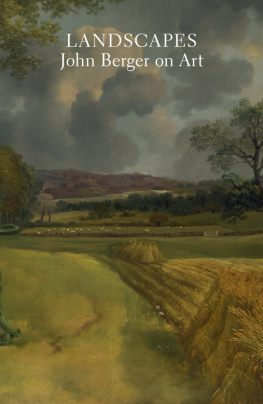Between the Pajarito and the river thats an open sea, turning sharply northwards, narrowing and narrowing at first, to almost half its size, then widening again and drawing curves towards its mouth, coiling in on itself, secluded in the first islands, is the Anguilas Stream. Beyond the final bend the open sea breaks into view, rucked up by the wind. Even in all their vastness, the waters here are shallow. From the mouth of the San Antonio to the mouth of the Lujn, everything is sandbank. The Anguilas empties out into the middle of this sandbank, amidst a field of reeds. Depending on your viewpoint, the place looks pretty bleak, and on a day thats grey, and with a blow, it disquiets any man.
Far off to the left, dark and silent like a ship, lies the isle of Santa Mnica. Far off to the right, fading blue into the distance, the shore. And if the day is clear, towards the south, like a lattice, the planes of grey and white of the highest towers in Buenos Aires can be seen, under the oppression of a constant grey cloud.
When strong winds from the north or the west cause a bajante, the water level plunges, and an area of sandbank rises up above the surface; after the bajante, it seems that terra firma has extended its dimensions, the springs that cross the reed bed feigning newly settled streams. There are fishermen who venture onto this new land, which is wet and desolate, but if they dont lay out the lattice matting from their boats, they sink into its mud, and almost to their knees.
The most recent of the charts marks the mouth of the Anguilas with a fishs silhouette, to show abundant catches here, but this is rather doubtful. In any case, theres nothing more daft than taking note of references like these. If there are certain fishermen who come to lay their nets here, at night, and in the week, its owing more to the fact that the area is little frequented at those times. This wretched habit makes them think the place is theirs, and the unsuspecting soul who takes advantage of their head rope runs the risk theyll sink his boat, and with gunfire, too. Once upon a time, Polo had to shoot his way out, letting fly at either bank, and then towards the reeds, with that aged English shotgun, the 1903 Purdey with its sawn-off steel barrels that he kept for such occasions. He bottom-trawled his nets across this very stretch of sandbank, seizing on a surge, and once out on the open sea he pulled the catch on board. He sold in San Fernando when a little time had passed. But this is now an old tale. Its a long time since Polo disappeared. The fishermen are still around, though, and in the week, at night, they lay their nets.
He was working with the old man almost until spring. It was nine years or so the old man had lived on the Anguilas, and for seven he was living from the reeds. He came down from the Romero in the year of 48, where, from 34, hed been working in the apples. It was the year of 47 that the Elbita, a six-ton fruit barge, foundered, drowning the only son whod stayed with them. So then in 48, and already getting old, he came to the Anguilas in the Elbitas little rowing boat. He made two journeys. One with their belongings, and the other with the old girl and Urbano, the dog, and two or three chickens. They made themselves a home in one of three empty cabins, the one closest to the river mouth, just where the Anguilas joins that blind little stream that peters out a little further on, often thought to be a prolongation of the Anguilas by those who dont know any better. Hed been confused himself in 48.
The cabin had two rooms, or really just the one, which was divided by a mud wall. As the years went by, the old man added two more rooms and put up a latrine, which he sited at the far end. Time made a group of the various parts, bringing them together in a dark and bulging mass, with two or three little openings, even darker still. Its base was very high and pretty badly bound together, with several rotten cross-beams. Over time it gave way on one side, the weakest, so the cabin gently leaned in that direction.
The stream was so narrow here you couldnt build a jetty. It was doubtful that the old man would have built one even so. Instead of this, he fixed a willow gangway to the bank, and tied the little boat from the Elbita to a cross-beam.
Everyones aware that the more you crop the reeds, the more they will grow. When many folk are cropping them, and cropping them too hard, a market glut will follow, and no ones going to pay much for another shed of reeds. Theres nothing more accursed nor more wretched. And, sad to say, there seem to be people on these islands who do nothing else.
Something like this happened just a couple of years ago, and the year after that, this last, no one cropped the reeds, or didnt try to sell, at least. The old man didnt either and hunger almost killed him. But he faced it all with dignity, on most days eating catfish, or, come the winter, silverside, which he called latterino, or else lattarina, and which are, after all, the rations of kings.
And so, the following year, the last one for the old man, the reeds picked up a bit.
Boga came along when the cropping had just started, and theyd worked together since, until this spring was almost here.
In the dead year, which is to say the year before, the old man finished work on the straw-and-willow refuge hed begun three years earlier, which was when Urbano died. He built it very low and didnt put in any walls, but placed it on a rise, beside a solitary ceibo. The old man dug the floor out to a depth of half a metre and built a sort of stove into one corner. They used it at midday or when the weather turned inclement. They ate a piece of pork belly with sea bread, then they drank some mat. Sometimes Boga grilled a catfish, when theyd caught one on the line, but really he preferred to take them home. Then they slept a while. The old man slept sitting up, with his head laid on his knees and his arms around his legs.
Neither the old man nor Boga ever said more than was needed. And yet they understood each other perfectly. At dawn, they walked into this green and humming solitude that swayed with every gust of wind. Each one made his own path, stepping through the water. At times it reached their thighs, but they didnt seem to notice. Beyond the wall of green, out towards this River Plate which the folk here call the open sea, they heard the water murmur as it rolled tirelessly across the sandbank. The distant, sorry screaming of a limpkin. The suffocated din of a motor launch, still further off. The sand boats with their rhythmic beating diesel engines as they travelled the canal. The boiling of the Glosters in the clouds as they leapt the sky in one, chased by their own din.
The old man had a skill never mind his age. When he gathered up the reeds from where hed laid them to dry, spread out on the rise around the refuge that hed built, he did it with a briskness that was staggering to see, and even with a certain elegance. He caught them in one swipe and, continuing the movement, shook the reeds out straight and then bound them in a sheaf, tying each one round with another reed in a final little flourish. Boga had neither this skill nor this degree of devotion to a matter that he didnt think called for artistry. In fact he felt a little bored, although he had a patience or, to call it what it really was, an indifference that never tired. What gave him pleasure was to gaze out from the refuge at the carpet of reeds, which hed spread out with the old man and which now shone darkly in the sun, giving this lonely corner the appearance of an island in the tropics.
When it was the time, the old man swapped the reeds for cats tail or bulrush. It didnt look the same when there was straw laid on the ground, but it served them just as well.










